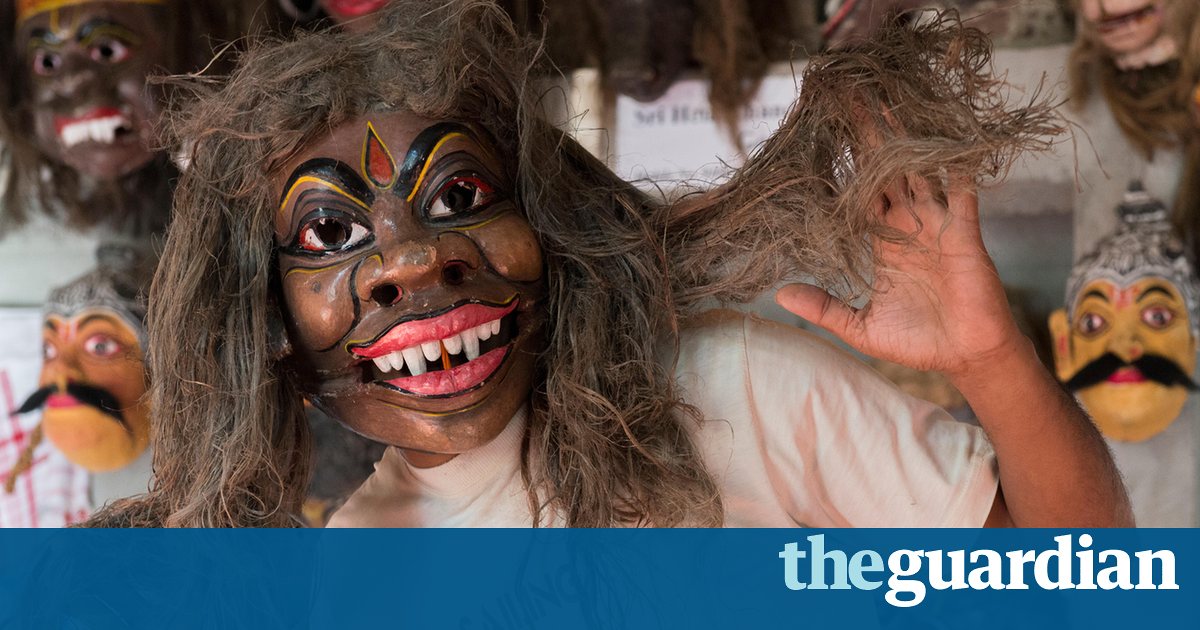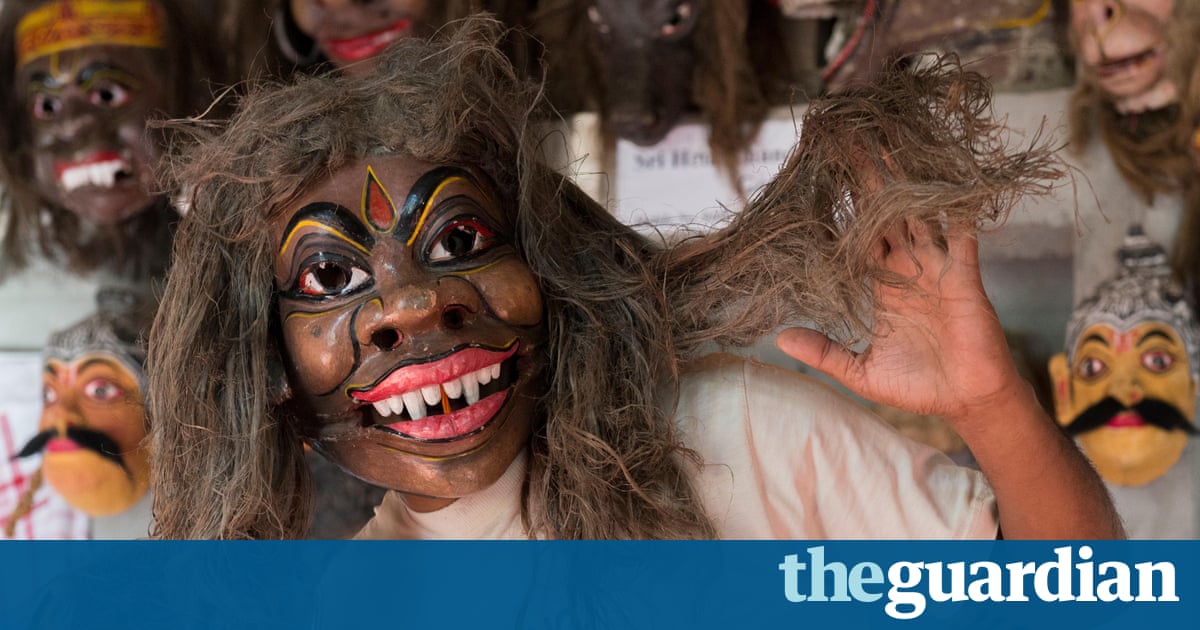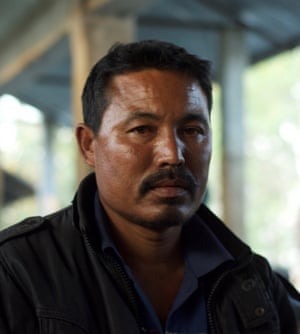Doctors are scarce on Indias river island so the witch-hunters are back

Victims face abuse or even death in villages in Assam where belief in the occult retains its grip

Days before Rajan Pegu was beaten to death, the villagers of Baspora had held a meeting. A string of unexplained deaths had occurred within weeks and the villagers believed some dark magic was at play. They asked Pegu, an elderly herdsman: Old man, are you a witch?
He told them: No, no, I am not a witch.
Then they called his son Nurul to face the crowd and asked: Is your father practising black magic?
He replied: No, no, my father is not a witch.
Four years since his father died in the tall grass, Nurul still does not know why the village turned against him. Sitting at his stall at the Jengrai fish market on the river island of Majuli, in the north-east Indian state of Assam, he recalls that horrific September week. He had gone to graze his cattle in Sapori [a nearby village]. Three days passed, but he did not return. On the third day, I went to the police to file a report. The police did a full investigation. They found the place where he was killed, and it was covered in blood. They found the sticks that were used to beat him hidden in his own hut. Then they found his body in the Brahmaputra river.
As he pulls out the case file in Jengrai, sub-inspector Bhoven Dehingi confirms Pegus account. Case number 38/11, he says. Charge is 302 murder. The police report contains Nuruls testimony and the names of the four men who are facing trial, all of them blood relatives of the Pegus. In red ink, next to their names, there is a note scrawled in English which reads witch-hunting.
The tribal people of Majuli live in an idyllic setting, among wild bamboo and open paddy fields. But the photogenic vistas hide a brutal history of beheadings, abuse and torture related to witch-hunting. And observers fear that government policies notably cuts in its health budgets, leading to a shortage of trained doctors might be leading to a resurgence in the practice.
With little access to the mainland, an hours ferry ride from the beach port, old beliefs in witches, known here as daayanis, have endured. In 2012, one village kept 35 of its own members under virtual house arrest, forcing police to dispatch 24-hour surveillance teams to ensure their safety. In the same year, five members of one family were killed after being accused of practising black magic and two others were hacked to death and their bodies thrown into the river.

Majuli is one of many places in India where such beliefs persist. The rise in incidents of witch-hunting nationwide, mostly in remote tribal pockets, blights Indias efforts to rebrand itself as a modern world power. According to the National Crime Records Bureaus most recent data, 135 people were killed for practising witchcraft in 2015, the equivalent of one person every three days. But even this statistic may mask the full scale of the problem: with few witnesses willing to come forward, many of these crimes go unreported.
Labelling someone a witch is often a means to settle old scores or take over property. Victims of witch-hunting are often the most vulnerable in the village: unmarried women or elderly people. Seasons too, could affect beliefs in the occult. Heavy monsoons or droughts have been linked to a surge in witch-hunting. Often, victims are ostracised; in the worst cases, they are beaten, beheaded or forced to undergo horrific rituals, such as being paraded naked in the village or eating human excrement.
Nurul is still trying to learn what drove his fathers murderers. The people who are charged are from our village, people from the family, people I have grown up with, who we have known our whole lives. There was a fight in the family, which had been going on for a while, but it could have been resolved. I dont know why they started pointing a finger at him, he says.
What happens sometimes is there some disease in the village, say smallpox, Dehingi says. Or there is a bad harvest or a dry monsoon. Some believe this happens because of witchcraft, and then the whole village starts to believe that. All the bad things are blamed on that person, he says.
Decades of government-led education programmes have failed to rid villages of these centuries-old beliefs. Police chief Kuladhar Saikia, who led the anti-witch-hunting drives in Assam, says it could take years to eradicate them. These beliefs are thousands of years old, so you cannot just erase them in a day. In this particular type of crime, the entire community will take the decision and participate. There is such a strong bonding between these villagers that they commit the crime together. In some cases, we have found sons participating in the killings of their own fathers, he says.
The prevalence of witch-hunting, according to Saikia, is closely linked to an absence of healthcare in rural districts. In some cases, witches are selected by travelling tantric healers or quacks, who make a living from selling cures and conducting purification ceremonies. The number one thing I found was that there is a lack of awareness about the modern healthcare system. Sometimes there are no doctors nearby. The healers give out herbal medicines, which are opium-based, anaesthetic pills or painkillers which sometimes have hallucinatory effects. This is where the problem can start, he said.
Under prime minister Narendra Modi, rural healthcare has seen drastic budget cuts, with major spending diverted to roads, railways and other flagship infrastructure projects.
But Saikia believes there is now greater willingness to report witch-hunting. Earlier, people were not coming forward. In very interior villages, the people of the village themselves were the perpetrators, so who would inform police? Now immediately people take notice of it. They report it to the police, they report it to the local press. Because people have come forward, the justice system starts working.
In May last year, Assam passed a law criminalising witch-hunting for the first time. Now some of Majulis old hotbeds have abandoned their superstitions. Our children are becoming doctors and nurses now, says Ranapangi, of the Sikardi village, where belief in witchcraft was once common. Nobody talks of daayanis now. Recently, a tantric man came to the village and accused someone of being a witch. The whole village got together and complained about him to the police. He was arrested.
But according to Nurul, little has changed in his village since his father was killed. Most of the village still believes in witchcraft, but I dont.
The men charged with Pegus murder are out on bail. It could be years before a verdict is reached through Indias sluggish legal system. In the meantime they continue to live in Baspora. I have moved on, Nurul says. I have forgiven. My heart is happy now. We live together, we eat together, our children play together. To live happily, to live in peace, I have to forget the past. I want to keep living in the village with everyone so I have to. What good is it to keep bringing up the past?
Read more: https://www.theguardian.com/world/2017/jan/29/witch-hunters-return-river-island-assam-india